Through the dim forest, a slow procession of hundreds of people largely dressed in white, some in a trance, others singing fervently, heads towards the Osun River. As they have every August for 700 years, Yoruba people gather here at the Osun-Osogbo sacred grove, a Unesco world heritage site in south-west Nigeria, for an ancient festival celebrating their traditional spirituality.
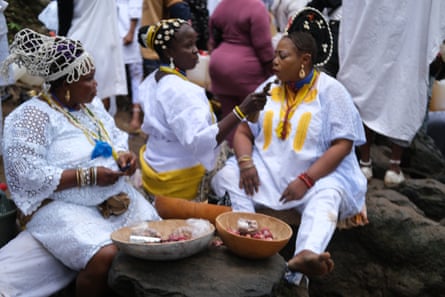
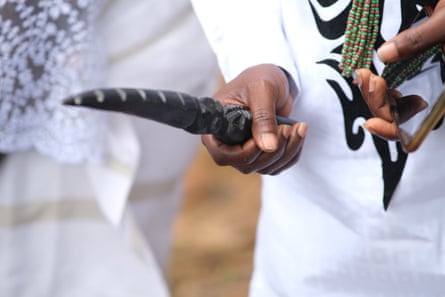
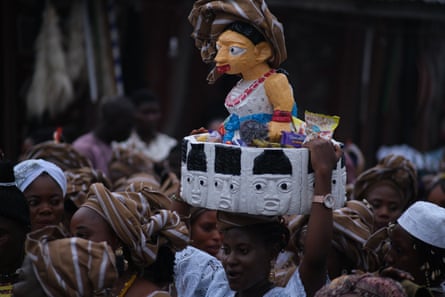
-
Clockwise from top: an Osun priestess on her way to the grove; a group of priestesses wait for the worshipers to arrive; an arugba, or virgin, leads a procession; Yoruba traditions are still practiced by a devout minority
Yoruba religious practitioners, adorned with cowrie shells, some with crosses or Islamic beads, pray for protection and offer sacrifices. In a region where Christianity and Islam are dominant, Yoruba traditions have often been cast as demonic – a legacy of colonial violence against Indigenous faiths – but are practiced by a devout minority and hold a wide significance for people of varying faiths.
Recent years have seen a growing appreciation of Yoruba spirituality among the younger generation, with more young people becoming practitioners and Ifá priests.

The two-week Osun festival attracts visitors from across the Yoruba-dominated south-west, along with diasporas from South America and the Caribbean, as well as tourists. Osun, the goddess of the river, is said to have appeared to an ancient warrior, instructing him to bring Yoruba people out of famine, into safety in Osogbo city. In return, they would offer a yearly festival.
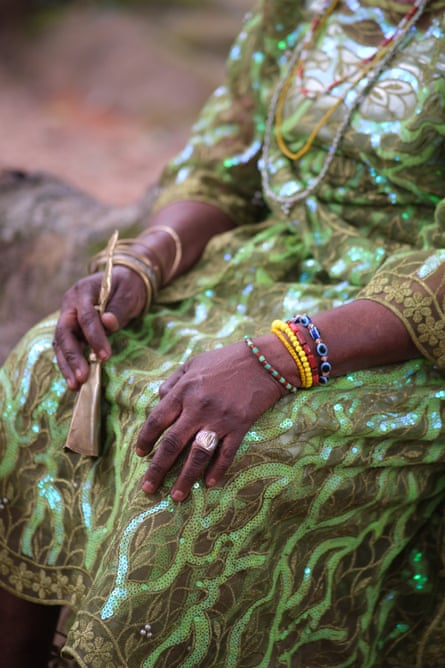
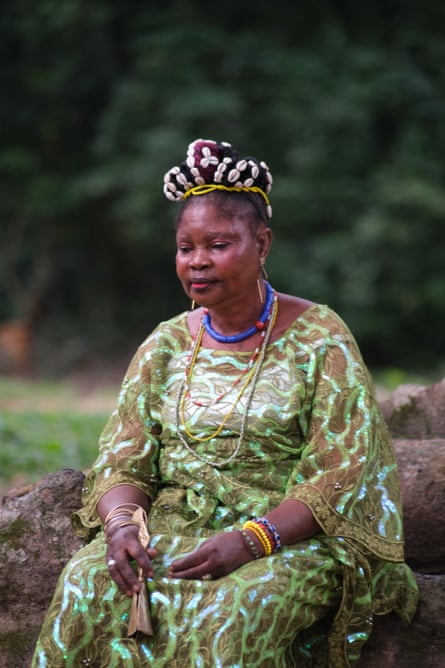
Osunnike Ogundele, 53, wears a shimmering green and gold lace dress, her hair braided with cowrie shells. “I’ve been here all my life,” she says, explaining her mother’s influence, and her own guidance for her children.
“My fondest memories of the grove are our mothers before us who passed on the knowledge we have now. There was so much to learn from just observing them and we are trying our best to pass this on to our daughters too,” she says. “Osun answers all prayers, no one cries to her without leaving with a smile.”
Osunniti Sikiru, 32, a Muslim and Osun priestess, is one of a number of custodians of the grove. She describes how, for Yoruba people, cultural heritage should be understood as predating the advent of Abrahamic religion in the region.
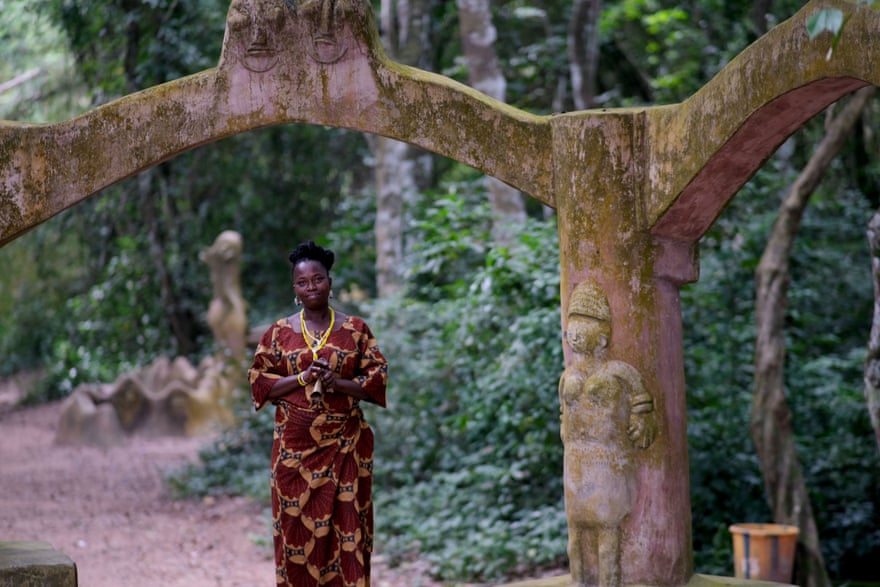
“Most of our forefathers weren’t Christians or Muslims,” she says. “There’s a big misconception that as a Muslim one can’t combine it with Osun worship. Water is very symbolic in Islam and Osun worship, both emphasize purity. I am still a practicing Muslim, I still pray five times a day, my son is named Ibrahim, but Osun worship precedes most religions in Yoruba land.”
Princess Adeola Iya Osun, 47, another priestess, chimes in. “One of my daughters is a pastor and my son actively goes to the church, but what I try to preach is a symbiotic relationship between faiths.”
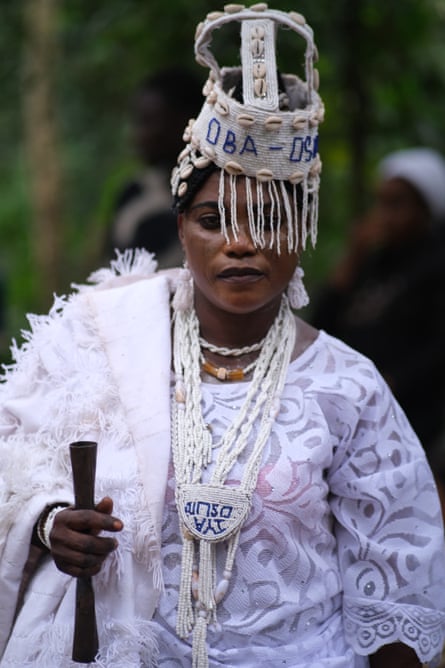
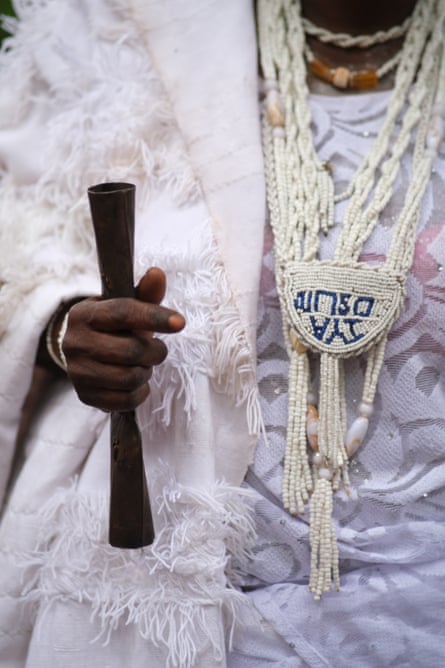
There have been concerns that the Osun River, seen as having healing powers, has been contaminated, sparking fears for the health of the worshipers who wash and drink here. local average investigations allegedly found dangerous levels of lead, lithium, aluminum and iron, caused by the activities of artisanal miners and large companies.
Last year, pictures of the polluted river caused uproar and demands for government action. A warning by the state authorities not to drink from the river came on the penultimate day of this year’s festival, sparking further anger. Some chose to drink anyway, knowing the river was contaminated, believing they would be protected from ill-health.


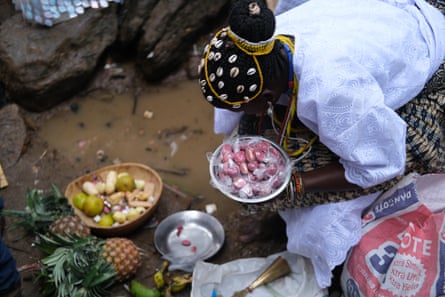

Pollution is a serious concern for those attempting to maintain the integrity of the grove and its surroundings.
A committee of custodians leads these efforts, clearing the litter, while preserving the architecture and stone carvings.
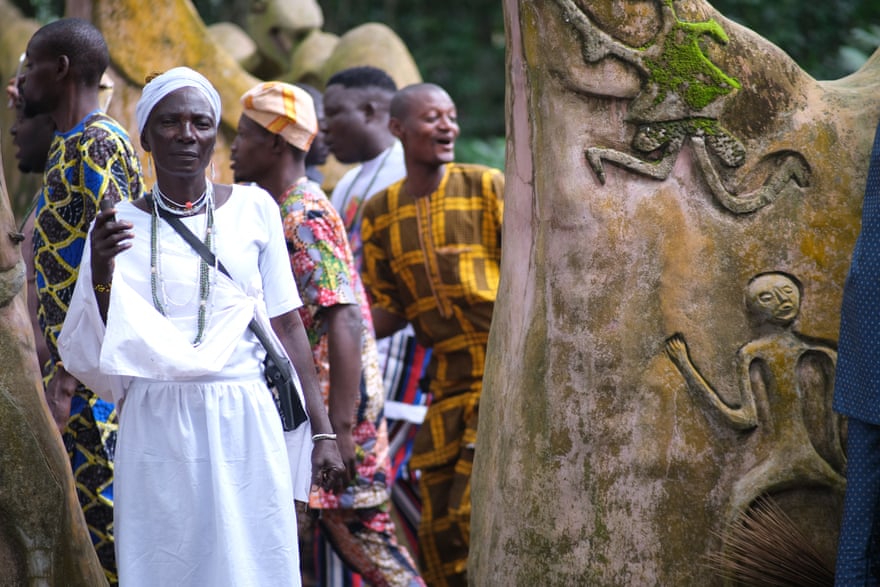
On the final day of the festival, visitors crowd the banks of the river to meet priests and priestesses for consultation and prayers. Baskets are laid out full of kola nuts, fruits and vegetables.
In a trance, a priestess bellows praises the goddess, then shares messages and warnings. As devotees arrive for prayers, testimonies are shared by people who have attended for several years.
Iya Osun’s parents had challenges having children, she says. “My mother came to pray to Osun for a child. I’m a result of that answered prayer.”
As the festival ends, the crowds leave the grove and the dense forest, their prayers made, hoping to return next year with testimonies of their own.
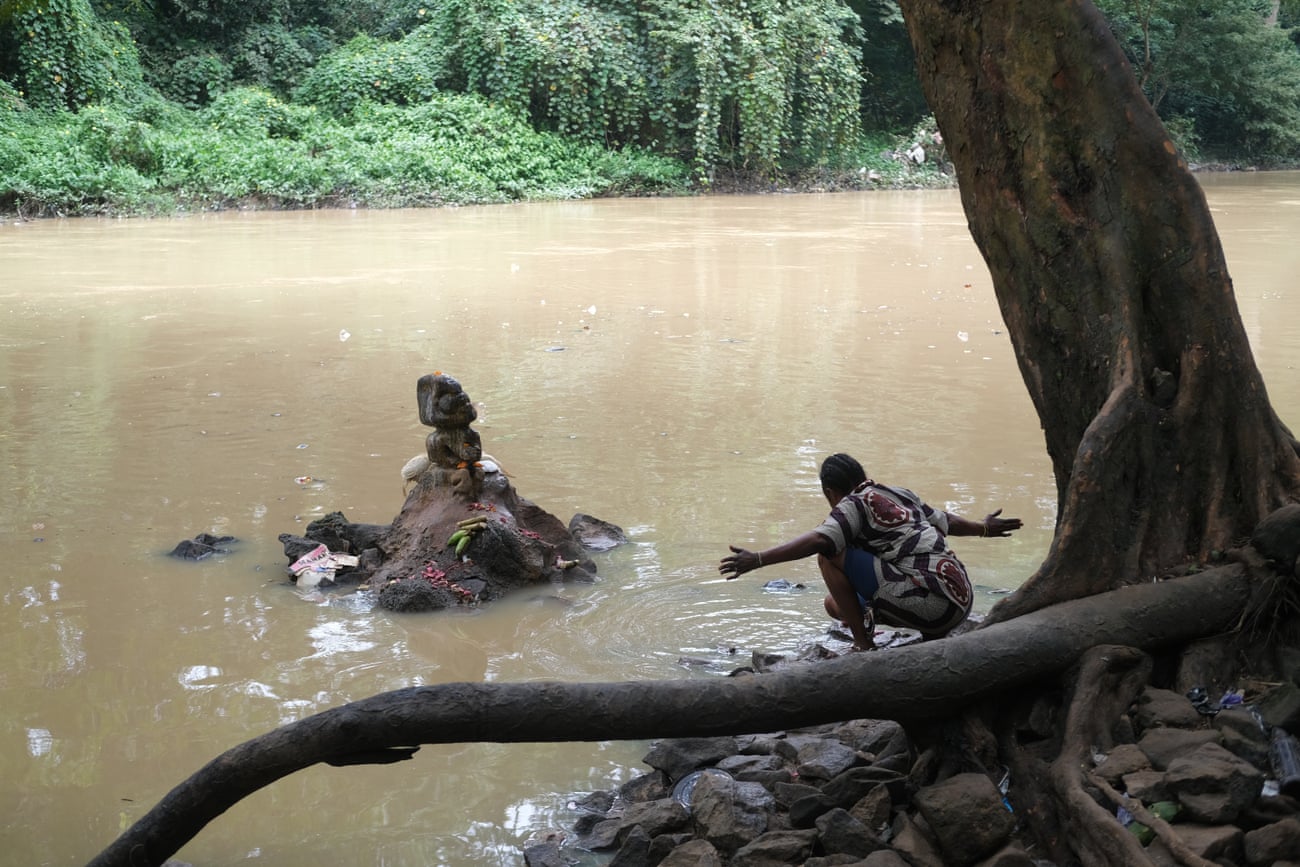
Sign up for a different view with our Global Dispatch newsletter – a roundup of our top stories from around the world, recommended reads, and thoughts from our team on key development and human rights issues, delivered to your inbox every two weeks:
Sign up for Global Dispatch – please check your spam folder for the confirmation email
www.theguardian.com
George is Digismak’s reported cum editor with 13 years of experience in Journalism